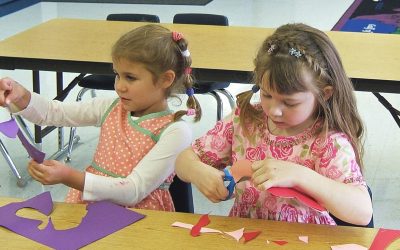Maxine wrote her book report, and noted all the required aspects: character, setting, theme, plot, and so on. She felt it was well written, plus it was very creative, and she was proud of her accomplishment.
When her teacher retuned the assignment, Maxine was devastated to see that she’d received a zero. ZERO??? Why???
She had written the entire report in rhyme. However, the teacher, having previously taught the class the elements of a report, had expected to see it structured with a clear introduction, three main body paragraphs, and a conclusion—in prose.
Maxine went home feeling disappointed and angry, and she stomped and fumed for a while. Afterward, she reflected on how to make matters better. She decided to sit down and write a book report in the conventional format, and to incorporate the ideas that she had included in the rhyming version. Then she stapled the two reports together.
Maxine spoke politely with the teacher and explained to him that although she had been upset, she understood the expectations. She presented what she had done, and asked if he’d consider grading the two reports together. He agreed to do that—and he ultimately gave her a high mark for her work.
Rather than allowing herself to stay sad and infuriated, Maxine had turned the situation around. By speaking calmly and respectfully, and by finding a compromise, she had created a win-win scenario. And, she had learned something about the power of negotiation, too!
“The question is not whether people with creative ideas will confront roadblocks, but rather how they’ll perceive and respond to the hurdles and rejections they experience.”
~ Beyond Intelligence by Dona Matthews and Joanne Foster (p. 39)
POINTS TO PONDER
In the whole scheme of things, each person is accountable for their own actions and outlook. It’s great to be creative (or to have your own perspectives, interests, or preferred ways of doing things), but not everyone will always agree with these. As kids develop their ideas, action plans, and goals, it’s important for them to keep in mind that what they do and say can have consequences, including having an impact on others people’s feelings, responses, behaviors, and more. Life is full of “give-and-take” experiences—whether at school, at home, in the playground, or elsewhere.
Here are three suggestions to help kids learn the fine art of negotiation:
- Let indignation settle. Instead of dwelling on criticism or remaining annoyed, look for the constructive aspects within comments or feedback. Ask yourself: What can I fine-tune so it becomes clearer or better?
- Choose how to respond. When ideas are conveyed, think carefully how to reply, and how to react to them. Consider ways to promote a positive dialogue and a productive vibe.
- Problem-solve. Don’t cave in by submitting to someone else’s will or demands if they seem wrong or make you feel uncomfortable. Talk to someone you trust, and ask for their help in dealing with the situation. Work through possibilities together–over time—to try and find a middle ground.
LAST WORDS (FOR KIDS AND ADULTS)
Sometimes frustration, anger, or other negative emotions can be difficult to reconcile. Strive to rein in impatience and set a collaborative tone. It’s helpful to have conversations that are respectful, involve careful listening, invite cooperation, and make people feel appreciated. Be willing to chat, to ask and answer questions, and to revisit matters. Resolve to move forward together. You might have to negotiate with others—and perhaps even with yourself!
AUTHOR’S NOTE:
This piece is updated from an article written by Dr. Joanne Foster that was featured in issues of Best Version Media’s Neighbours Magazines, and distributed across Ontario, Canada and beyond.








